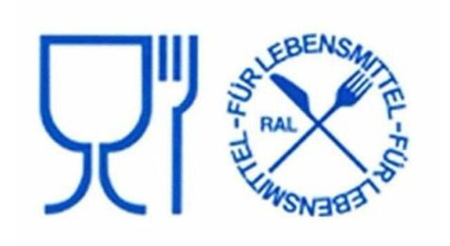
LFGB certification, also known as "Food, Tobacco Products, Cosmetics and Other Commodities Management Act", is the most important basic legal document in the field of food hygiene management in Germany, and is the criterion and core of other special food hygiene laws and regulations. In recent years, however, some changes have been made, mainly to match European standards.
Significance
The knife and fork sign is a food safety sign. If there is a knife and fork mark on the daily necessities in contact with food, it means that the product has met many German and European standards through testing and met the requirements of German LFGB regulations, proving that it does not contain toxic substances harmful to human body and can be sold in Germany and other European and American markets. In the European market, products with knife and fork logo can enhance customers'confidence and desire to buy. They are powerful market tools and greatly increase the competitiveness of products in the market.
Product scope
LFGB tests are for all materials, including products manufactured with the latest technology, such as chromium plating on grills, temperature resistance testing of Teflon coating on cooking pans, and testing of silicone seals in kettles. Usually involved in the areas of ceramics, synthetic plastics, polyvinyl chloride, plasticizers, paper products, leather, textiles, cosmetics, tobacco and so on. The products involved include: baking ovens, sandwich ovens, electric kettles and other electrical products in contact with food; food storage supplies; strengthened glass pans, stainless steel pans and other kitchens. Tableware; bowls, forks, spoons, cups and plates; clothing, bedding, towels, wigs, false eyelashes, hats, diapers and other sanitary items, sleeping bags, shoes, gloves, watch straps, handbags, wallets/wallets, briefcases, chair covering materials; textile or leather toys and toys containing textile or leather clothing; direct; Yarns and fabrics used; various cosmetics and tobacco products.
Test items
Generally, Articles 31 and 31 of the German Food and Commodities Act of LFGB include the following test items:
1. Preliminary inspection of samples and materials
2. Sensory Assessment of Odor and Taste Transfer
3. Plastic Samples: Testing of Transferable Components and Testing of Precipitable Heavy Metals
4. Metals: Testing of Composition and Precipitable Heavy Metals
5. Silicone Resin: Testing of Transferable or Volatile Organic Compounds
6. Special Material: Chemicals Hazard Testing According to German Chemicals Method
OViS can provide testing projects for food contact materials in European countries:
China Food Contact Material Testing
European Union Food Contact Material Testing (1935/2004/EC)
German Food Contact Material Testing
French Food Contact Material Testing DGCCRF
U.S. Food Contact Material Testing
Detection of Italian Food Contact Materials D.M.21/03/73
Japanese Food Contact Material Testing JFSL 370
UK SI 898










